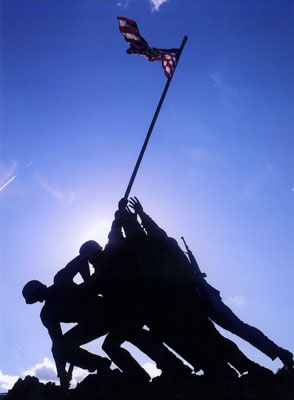All Nonfiction
- Bullying
- Books
- Academic
- Author Interviews
- Celebrity interviews
- College Articles
- College Essays
- Educator of the Year
- Heroes
- Interviews
- Memoir
- Personal Experience
- Sports
- Travel & Culture
All Opinions
- Bullying
- Current Events / Politics
- Discrimination
- Drugs / Alcohol / Smoking
- Entertainment / Celebrities
- Environment
- Love / Relationships
- Movies / Music / TV
- Pop Culture / Trends
- School / College
- Social Issues / Civics
- Spirituality / Religion
- Sports / Hobbies
All Hot Topics
- Bullying
- Community Service
- Environment
- Health
- Letters to the Editor
- Pride & Prejudice
- What Matters
- Back
Summer Guide
- Program Links
- Program Reviews
- Back
College Guide
- College Links
- College Reviews
- College Essays
- College Articles
- Back
Don't Shoot the Messenger
In a tragedy that has marred the face of American diplomacy and foreign policy, the death of Ambassador Chris Stevens in Libya begs the question: how can the United States fail to protect its diplomats abroad? As new details emerge surrounding the attack on the U.S. consulate in Benghazi, so do cracks in the highest echelons of security detail. The events of September 11th, 2012 were not merely spontaneous protests over inflammatory videos- there are machinations much deeper in the region than we have anticipated. But the more pressing issue at the moment is how the Obama administration handled the ensuing crisis. Their account of the events was repeatedly changed, used incorrect information, and initially having described the attack “as a protest gone awry.” The administration’s approach to PR at this critical juncture was tainted by the rapidly closing election season, and the need to preserve the image of a weakened Al-Quaeda and a strong U.S. presence in the Middle East. But the role of government is not to cinch political goals- it is to protect the rights and lives of its citizens, at home and abroad: and in this respect, the Obama administration has fallen far short, both for its actions before and after.
Two versions of the story have since widened the rift over what really occurred. In particular, one side has argued that the deaths of the four Americans in the consul were premeditated attacks coordinated by extremist group Al-Quaeda, and have since picked apart the President’s handling of the situation. On the other hand, President Obama and his staff insist that day’s protests were sparked by an uproarious video, called Innocence of Muslims- depicting Mohammed, prophet of Islam, in a variety of blasphemous and desecrating poses. In fact, Susan Rice, United Nations Ambassador, was given a list of talking points by the Central Intelligence Agency, which included the “spontaneity” element: “Available information suggests that the demonstrations in Benghazi were spontaneously inspired by the protests at the US Embassy in Cairo and evolved into a direct assault against the US diplomatic post in Benghazi and subsequently its annex.” As to the issue of a video as catalyst for widespread upheaval, dozens, if not hundreds, of these deprecatory materials are released daily. What is the chance that this particular video- one that did not in any respect deviate from the usual offensive standards- would be the primary reason for the attacks on the consulate? The timing of September 11th, 2012, is not a coincidence either.
What is particularly upsetting about the White House’s handling of the situation are the political undertones, that effectively balance with the value of human life. Obama had to trod carefully, declaring repeatedly afterwards that the attacks could not have been perpetrated by Al-Quaeda, for “under the leadership of Barack Obama we had decimated Al-Quaeda.” The death of Osama bin Laden was a central tenet of his campaign this season, one that could not be compromised by the ambassador’s death. Instead, Obama and Rice pointed towards the video, to divert attention away from what could be have revealed a costly break in communications between Libya and Washington.
In fact, there was a continuous dialogue between the consul and the Department of State. Observers on the ground in Benghazi were reporting rising tensions in the days leading up to the attacks. Jamal Mabrouk, a soldier in the February 17th Brigade- an ally of the diplomats- had warned the officials in the area of “the growing presence of armed jihadist groups in the Benghazi area.” This entirely disproves the notion that the protests sprung out of the video released on September 11th. Already, machinations were underway. While the lines of communication are still too murky to dissect, there was evidently a breach of correspondence: and if top officials failed to act upon this knowledge, then who will?
Who will send aid the next time a representative of the United States is caught in a similar situation? The questions are magnified in the context that there are serious breaks in the operations of between both the State Department and the Oval Office and our officers abroad. It is the ultimate charge of the government to protect our interests at home and away, and those convey them. The actions of the Obama administration in light of overwhelming evidence fail to reach these goals.

Similar Articles
JOIN THE DISCUSSION
This article has 0 comments.
